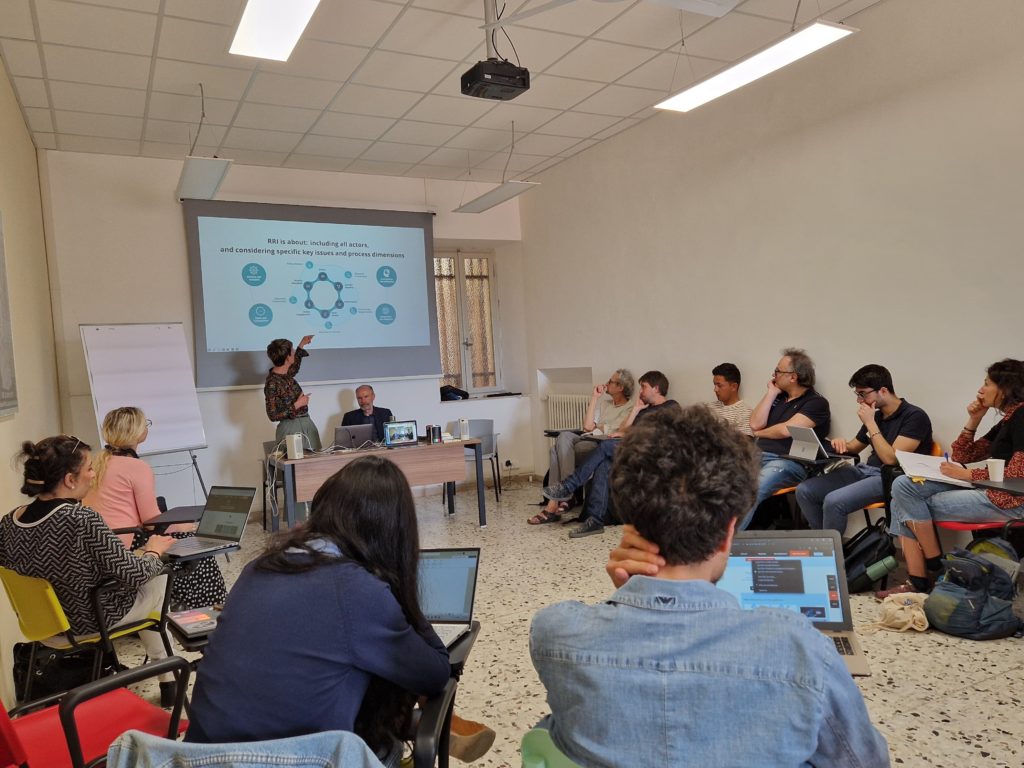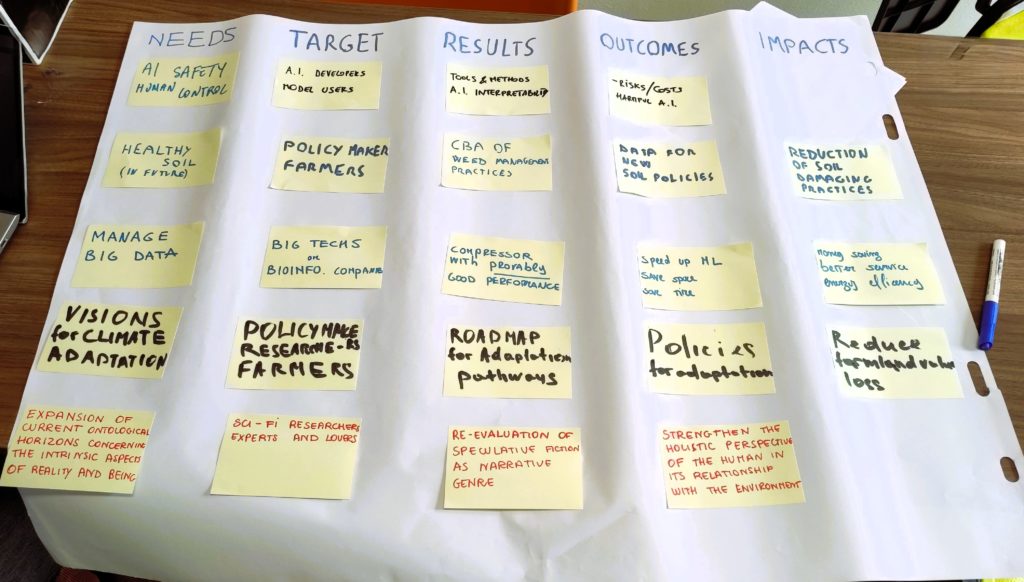
Transversal course on Responsible Research and Innovation (RRI)
Authors: PAGE group
During May, the University of Pisa offered a transversal course (official program) for PhD students, focused on Responsible Research and Innovation (RRI). The course reflects the University of Pisa’s commitment to RRI, as evidenced by the various related events it regularly organizes. it regularly organizes.
The course was coordinated by Prof. Gianluca Brunori (Full Professor at the Department of Agricultural, Food and Agro-Environmental Sciences, University of Pisa) in collaboration with Prof. Valentina Mangano (Director of CISP – Centro Interdisciplinare Scienze per la Pace/Interdisciplinary Science Centre for Peace). It was hosted by CISP and streamed on Teams, comprising three modules. The course provided 20 students with a general overview of the concept, a theoretical background and some practical application tools.

Why an RRI course? Responsible Research and Innovation is one of the guiding principles of European Research Policy, which considers research as one of the most important drivers of change in addressing the societal challenges that Europe faces.
RRI in a nutshell
- Involving society in science and innovation ‘very upstream’ in the processes of R&I to align its outcomes with the values of society.
- A wide umbrella connecting different aspects of the relationship between R&I and society: public engagement, open access, gender equality, science education, ethics, and governance.
- A cross-cutting issue in Horizon 2020, the EU Programme for Research and Innovation 2014-2020.
Source: https://rri-tools.eu
PhD students from diverse backgrounds, including humanities and physics to computer sciences and agricultural studies (PAGE), participated in the course. The aim was to familiarize them with the concept of RRI and to integrate RRI principles into their research practices. The course provided various examples of application of RRI to different disciplines and offered tools for designing research project based on RRI principles.

Thanks to the lectures of various experts in different fields (Prof. Simone van Der Burg, Daniela Lüth and Prof. Maria Luisa Chiofalo) encouraged the students during the first day to share their thesis topics with other colleagues, to participate to the discussion with guided questions and explore RRI in their research context.
Instead, during the second day, thanks to the lesson with Mascha Stroobant and Martina Calamusa, and through a practical session on Horizon Europe, they worked in interdisciplinary groups to discuss and create an example of Pillar II project. This experience allowed them to appreciate the effort of considering RRI across disciplines, even those very different from their own.
In this practical session the main aim was to acquire basic skills for project design especially on the impact section. This part is crucial for demonstrating the project’s potential to address societal challenges, foster innovation, and contribute to the European Union’s strategic priorities.
On the last day, the three groups presented their work with five minutes pitches, sharing the audience their discoveries and the challenges they faced. This was followed by intervention of Prof. Francesco di Iacovo, introducing the topic of social innovation processes. He provided theoretical and empirical examples demonstrating how people empowerment, existing resource mobilisation and public goods management can drive a deep change in the social and economic fabric. The two vice rectors, Prof. Corrado Priami and Prof. Benedetta Mennucci presented the strategy implemented by the University of Pisa to foster good research, sustain the grants opportunities and promote innovation and technological transfer. Among the many points highlighted, they stressed how much these initiatives are embedded in RRI framework, bringing the example of UNIPI Code of Ethics, how essential is to build infrastructure involving diverse stakeholders to achieve innovation and they encouraged young researchers to follow their inner curiosity. The course concluded with Karel Haegeman’s speech on transformative innovation, underlining how the integration of innovation into European policies can foster significant social transformation.
RRI aligns science and technology with social needs and values, building on inclusiveness, sustainability, transparency and ethics, transforming research into a tool for the common good and addressing global challenges in a sustainable way. Giving doctoral students the opportunity to get to know these principles at the beginning of their research career is certainly an experience that can enrich their own career. The success of the initiative was also demonstrated by the number of online and in-person participants.
Keywords: RRI Framework, Social Innovation, Horizon Europe, Societal Challenges, Project Design

